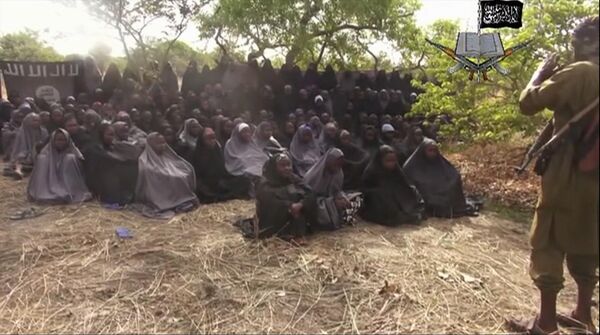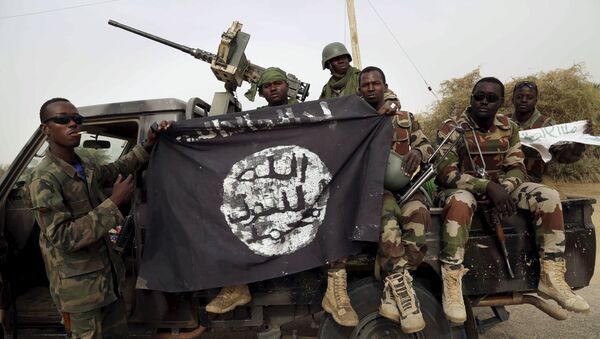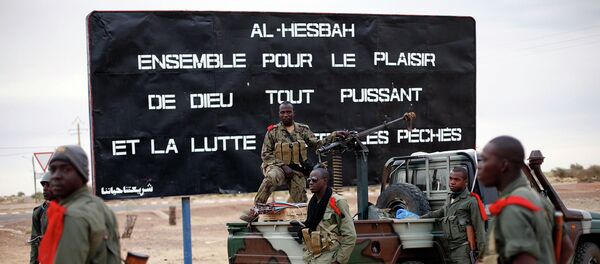WASHINGTON (Sputnik) — On Wednesday, President Barack Obama announced that the United States has deployed 90 out of a planned 300 military personnel to Cameroon to conduct airborne intelligence and surveillance operations.
"The United States has worked closely with training and equipping the so-called rapid reaction force… of the Cameroonian military [since 2009]," Atlantic Council Africa Center Director J. Peter Pham told Sputnik on Friday. "So there’s a basis on which to conduct more advanced training."
A gradual approach is ideal, Pham explained, that starts with the US military establishing baseline intelligence and gathering information on Boko Haram’s cross-border movements, followed by training military units the US feels confident with.
Boko Haram represents a dynamic challenge that has shifted over the past few years that has no quick, easy fix, Pham asserted.
"I testified at the first US Congressional hearing on Boko Haram back in 2011, and at that time, there was very little attention paid [to it]," Pham claimed.
Johns Hopkins University Professor and military historian Michael Vlahos told Sputnik that the US deployment of military personnel to Cameroon might be prudent move to demonstrate US resolve in the fight against Boko Haram terrorists.
"Plus, it does no harm whatsoever for the US to show African countries that America is there for them," Vlahos added. "Building relationships quietly, like this, is still where America shines today."
On Sunday, two female suicide bombers killed at least eleven people in northern Cameroon's Kangaleri. A day earlier, about 40 people were killed and 50 wounded in five explosions in the western Chadian village of Baga Sola.
The UN Security Council condemned the terrorist attacks in Chad and Cameroon attributed to Boko Haram, calling for the perpetrators to be brought to justice. Moreover, it called on all UN member states to cooperate actively with the local authorities during the investigation.
In February, Boko Haram expanded its attacks from Nigeria to neighboring Cameroon, Niger and Chad, prompting those countries to establish a multi-national joint task force.
Boko Haram was associated with al-Qaeda before shifting its allegiance to the notorious Islamic State militant group earlier in 2015.



